21, August 2018
Battle For Southern Cameroons: Traditional rulers Flee Violence in Southern Zone 0
Dozens of Cameroon’s tribal rulers have fled their palaces in the English-speaking southwest region after armed men pulled the chief of the Balondo people out of church and killed him. Separatists have abducted and killed other chiefs in the region, allegedly for collaborating with the government.
At the Catholic church in Buea, southwestern Cameroon, people gathered to pray on Sunday afternoon for the late chief Stephen Itoh Esoh.
A week ago, gunmen pulled the supreme chief of the Balondo people out of the Baptist church in Ekondo Titi village and shot him dead.
Among those praying was Peter Njumbe, a Cameroon lawmaker. He said if the chief had listened to them, he might still be alive.
The chief refused to run away from Ekondo Titi, said Njumbe. He would not abdicate from his throne because of death threats. He would only abdicate if his own people told him they no longer wanted him and that he should leave the throne, says Njumbe. The chief would not abdicate his responsibilities, he added.
Strikes and violence erupted in the English-speaking northwest and southwest regions of Cameroon in late 2016, in response to the forced use of French in schools, courts and other public institutions. A separatist movement is pushing for independence under the name Ambazonia.
Chief Itoh is the eighth traditional ruler killed by armed men in the southwest region within the past four months.
Since July, the separatists have abducted seven other chiefs in the southwest and three in the northwest they accused of collaborating with the government. They circulated videos on social media of the chiefs pledging their allegiance to armed separatists, presumably under duress.
One of the abducted chiefs was later found dead, provoking widespread condemnation, while the others were released.
Many traditional rulers have fled the English-speaking regions to avoid becoming targets, according to the government.
Chief Joseph Ebong of Atati village escaped to Nigeria after being threatened with violence. Speaking by phone, he said he will only return to Cameroon when peace returns to English-speaking areas.
“We are appealing to both the national and international community to turn their eye on Cameroon and try to see how they can solve this problem before we shrink into a full-fledged, full-scale war,” Ebong said.
Traditional rulers say Cameroon’s military offers them little protection.
The governor of the southwest region of Cameroon, Bernard Okalia Bilai, is calling on the chiefs to return. He says the military has been deployed to defend the people, including the chiefs.
“They should come back to their homes. The forces of law and order are there to protect them against all acts of terrorism,” Bilai said. “The traditional rulers, we invite them to come back.”
The attacks on the tribal chiefs have generated widespread criticism of the separatists in Cameroon.
Ebenezer Teba is a member of the elite in the southwestern town of Lebialem. He says the assaults on traditional rulers — custodians of ancestral traditions are unacceptable.
“It is an atrocity that has reached its apex,” Teba said. “Of course, those who are attacking are known. They are those claiming to be fighting for the independence of southern Cameroons. They are attacking traditional rulers because they feel these traditional rulers are giving information to government troops to enable government troops to attack them. So they want all traditional rulers, they are forcing all traditional rulers, to support their course.”
Sociologist Bernard Arrey, however, blames the chiefs. He says they are getting involved in politics and taking sides against the wishes of their people.
“Chiefs are meddling into politics,” Arrey said. “It is not strange to see chiefs treated like common citizens. Chiefs have lost control of their population, they have lost control of their dignity. Most of them are even victims of these fighters because they think that the chiefs are some sort a liaison, they relay information. They are some sort of a sell-out to the government forces.”
The armed separatists have never denied responsibility for the abductions and killings. They have instead issued warnings on social media against any chief collaborating with the government.
Cameroon’s government says it is counting on the chiefs to help end the fighting in the English-speaking region.
The government says hundreds of people, including more than a hundred policemen and troops, have died in violent clashes since January.
Source: VOA
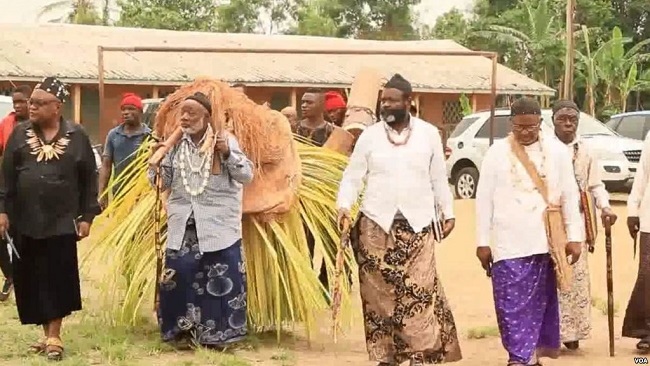
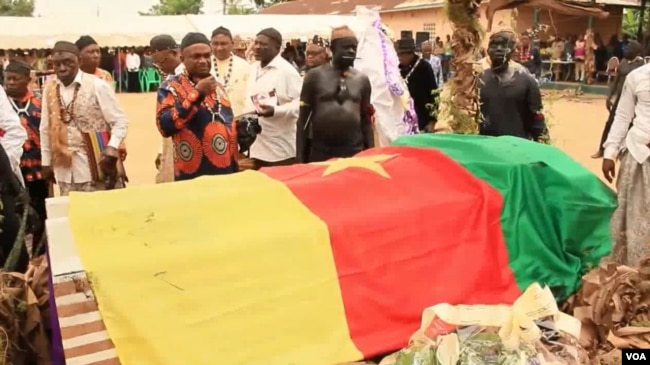
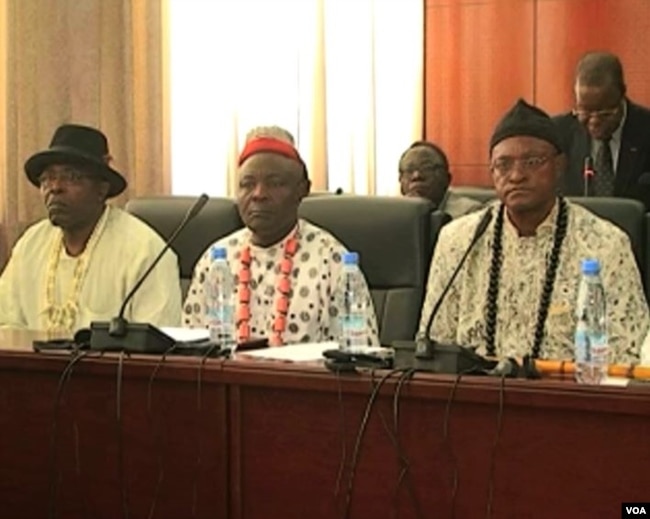


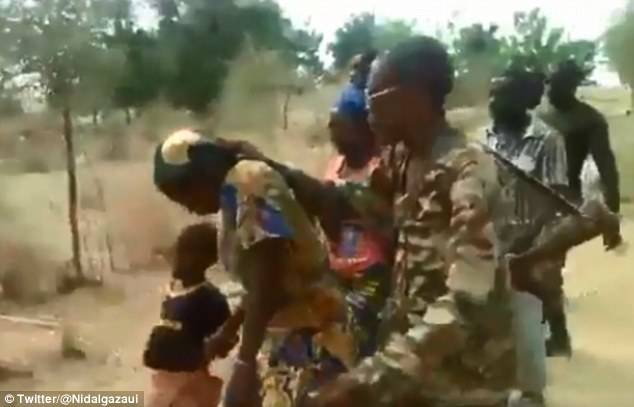




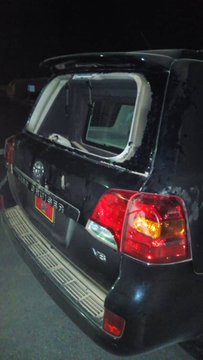


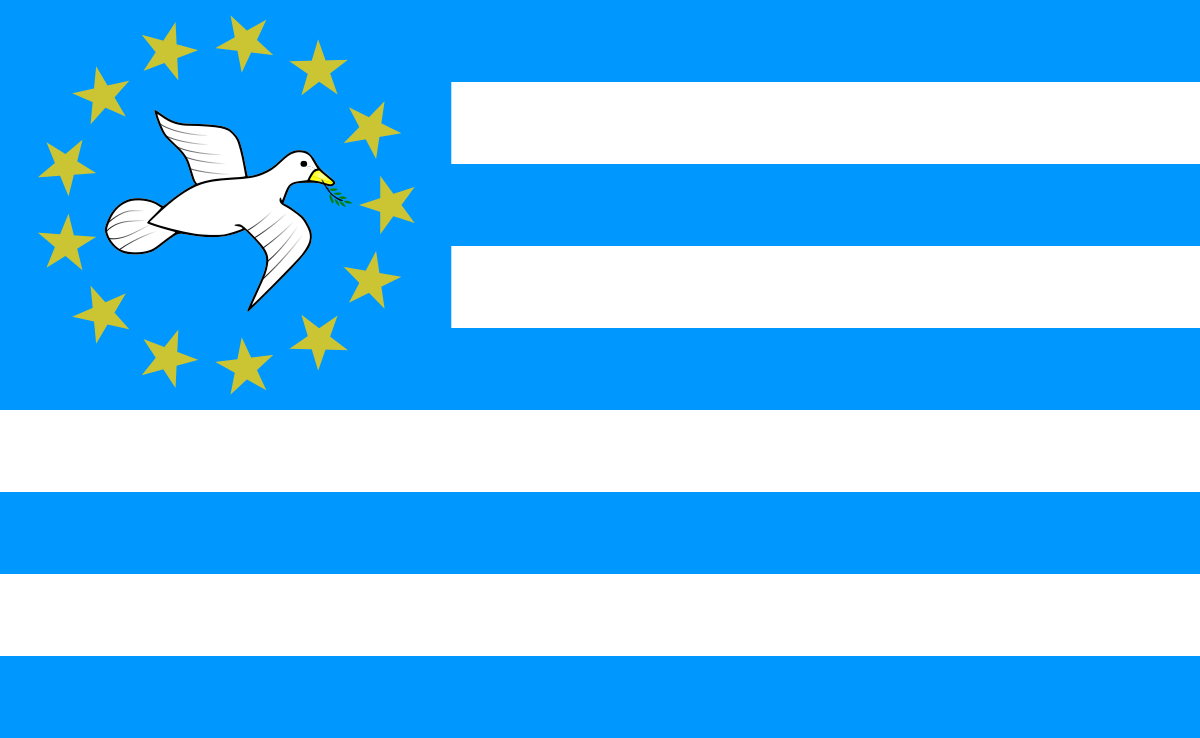

















23, August 2018
Central African Republic: Armed groups want blanket amnesty, plus 96 other demands 0
Blanket amnesty, renegotiating military deals with Russia and restructuring the army are among the several demands that armed groups in the Central African Republic have presented to an African Union expert panel seeking to broker peace in the country.
An AU document, seen by AFP, lists 97 demands by the armed groups in return for peace, with a government of national unity required along with the amnesty and a restructuring of the army.
The African Union has been leading a peace process in the Central African Republic but there has been little progress.
The C.A.R. crisis
CAR descended into violence in 2013 following the ouster of the majority-Christian country’s president, Francois Bozize, by a coalition of Muslim-minority rebel groups called the Seleka.
In response, Christians, who account for about 80 percent of the population, organised vigilante units dubbed “anti-balaka.”
France intervened militarily to help force out the Seleka before handing on to a UN peacekeeping mission.
However, the central government remains very weak, with its authority largely confined to Bangui, and violence has led to thousands of deaths.
According to a diplomat in Bangui, representatives of each armed group are expected to meet with the AU panel in the western town of Bouar on Monday to seek to “harmonise” their demands, before submitting the final list to the authorities.
But the government has so far refused to accept any conditions for the cessation of hostilities.
The Russian question
Another demand received by African Union experts is a review of military deals between the CAR and Russia.
Moscow has had a high diplomatic presence in the country in recent months and is seeking to organise a parallel mediation meeting on Saturday in the Sudanese capital Khartoum, according to sources.
CAR spokesman Ange-Maxime Kazagui on Monday denied any government involvement in those talks and reaffirmed Bangui’s strong support for the African Union mediation.
Backed by the United Nations and the Central African Republic’s main partners, the African panel has also met with former presidents Michel Djotodia, in Benin, and Francois Bozize, in Uganda.
There have been numerous attempts at mediation in CAR since the start of the crisis, and seven peace deals have been signed, without any sign of calm being restored.
AFP